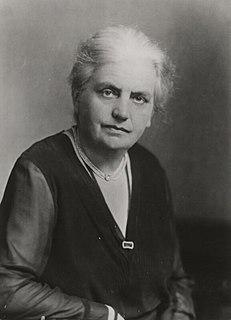A Quote by Sigmund Freud
There is scarcely room for doubt that something in the psychological relation of a mother-in-law to a son-in-law breeds hostility between them and makes it hard for them to live together. But the fact that in civilized societies mothers-in-law are such a favourite subject for jokes seems to me to suggest that the emotional relation involved includes sharply contrasted components. I believe, that is, that this relation is in fact an 'ambivalent' one, composed of conflicting affectionate and hostile impulses.
Quote Topics
Affectionate
Ambivalent
Believe
Between
Breeds
Civilized
Components
Composed
Conflicting
Doubt
Emotional
Fact
Favourite
Hard
Hostile
Hostility
I Believe
Impulses
In Fact
Involved
Jokes
Law
Live
Makes
Me
Mother
Mother-In-Law
Mothers
Psychological
Relation
Room
Scarcely
Seems
Societies
Something
Son
Son-In-Law
Subject
Suggest
Them
Together
Related Quotes
[T]hus one should not think that desire is repressed, for the simple reason that the law is what constitutes both desire and the lack on which it is predicated. Where there is desire, the power relation is already present: an illusion, then, to denounce this relation for a repression exerted after the event.
The Gospel is temporary, but the law is eternal and is restored precisely through the Gospel. Freedom from the law consists, then, not in the fact that the Christian has nothing more to do with the law, but lies in the fact that the law demands nothing more from the Christian as a condition of salvation. The law can no longer judge and condemn him. Instead he delights in the law of God according to the inner man and yearns for it day and night.
I doubt whether there is any subject in the world of equal importance that has received so little serious and articulate consideration as the economic status of the family - of its members in relation to each other and of the whole unit in relation to the other units of which the community is made up.
The world's most 'primitive' people have few possessions, but they are not poor. Poverty is not a certain small amount of goods, nor is it just a relation between means and ends; above all it is a relation between people. Poverty is a social status. As such it is the invention of civilization. It has grown with civilization, at once as an invidious distinction between classes and more importantly as a tributary relation.
Laziness acknowledges the relation of the present to the past but ignores its relation to the future; impatience acknowledge its relation to the future but ignores its relation to the past; neither the lazy nor the impatient man, that is, accepts the present instant in its full reality and so cannot love his neighbour completely.






































